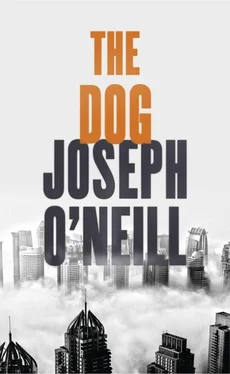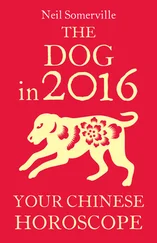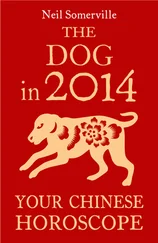I feel a lot better. Everything is out in the open. I’ve done what was needed, and done it in a way that is, I believe, sensitive to all parties. Now it’s up to the parents and their child to figure things out. My work here is done.
Meanwhile there’s the problem of what to do with the kid for the rest of the day. We can’t just sit around fuming and licking our wounds. In any case, my wounds have healed.
I go into his part of the room. ‘OK,’ I say. ‘Let’s go. Field trip.’ I jingle the keys to the Autobiography.
‘Where we gøing?’
We are going to the Al Fahidi Fort, which I’ve always wanted to visit. It has stood for two centuries and is the real deal, if by realness we mean oldness. These days the fortress is hemmed in by car traffic and by dense, dishevelled Bur Dubai, and the old magnificence — towers looming on white sands, warriors approaching on horseback — must be fantasized. For me, that’s not a problem: I can’t look up at those pale stone battlements without catching a glimpse of Beau Geste and, on the inland horizon, the gangsters of the sands. The fort now houses the Dubai Museum and, we are promised, artifacts from the bygone days. With luck, the kid and I will learn something. I’ve taken the precaution to not utter the word ‘museum’. At his age, just hearing the word knocked me into the stupor I associate with being clubbed on the head.
And with stepping into the Dubai heat. Our summer sun is a goon. We cannot linger in the fort’s large courtyard. We dash past cannons, a dhow, and a hut with walls made of dried palm fronds. We make it indoors.
What can I say about what happens next? We go down a staircase and are confronted with stuffed flamingos hanging mid-air on strings. There is a soundtrack of waves and bleating birds, and there’s a panoramic maquette of the desert featuring the Creek and some trees, all on a ridiculously minuscule scale that presumably replicates the flying flamingo viewpoint. The kid gives me a WTF look. I start to explain that the museum dates back to 1971 and even think about bullshitting him about the interestingness of the technological gap that separates the now from the then. I can’t keep a straight face, however. I say, ‘OK, you’re right. This place is weird.’ From that moment on, we’re in a comedy. We have a chuckle at a wood platform used as an outdoor bed, we feign awe at a goatskin drum, we stand in actual awe before a waxwork of life-sized Arab men drinking tea and puffing on shisha pipes. ‘It’s so bad it’s good,’ Alain says, and I can see he’s proud of this comment. When he watches some film footage of long-gone fishermen dancing and chanting, the youngster, who let’s not forget is as sizeable as John Candy, if a little shorter, does a funny shimmy. We’re having a great time — and, I must insist, not at the expense of the good people who worked hard on these exhibits forty years ago, or out of disrespect for the local traditions honoured here. There’s room in the world for a bit of innocuous, good-natured irony. It’s not anybody’s fault that, until very recently, this has always been an uneventful, materially poor, culturally static corner of the world, with inhabitants who did not prioritize their own future prestige or devote themselves to producing deathless objets for their museological self-representation in posterity. I find this refreshing. One detects, in the as it were whiteness of the pages of the history of Arabia Deserta, a conformity with ideals of modesty that contrasts favourably, in my book, with the vainglorious agendas of certain other nations. (Ted Wilson (I recall from my YouTubing of a conference talk he gave) thought that Dubai’s blank past was a great ‘storytelling’ opportunity. This shocked me a little. I hadn’t understood that it’s no longer officially denied that history is cooked up. I’m fully aware that country branding is as old as Genesis, but have we become so despairing that we openly boast of our frauds on the facts? Jeepers creepers, whatever happened to lip service and the ceremony of innocence? Do we no longer require of our governors that at the very least they dissemble their motives and spare us, if nothing else, shame? Evidently not. Evidently we live in a world in which deep thinkers or investigative journalists are no longer required to bring to light the mechanisms by which our world, and our sense of it, is controlled. The controllers, like those buildings that wallow in their pipes and ducts, now jubilantly disclose their inner workings. (In this sense, the Ruler is behind the times. He’ll learn soon enough, I’ll bet. It won’t be long before we’ll be deafened by the screeches of whistles being blown by whistleblowers blowing the whistle on themselves.))
The most striking exhibit is the diorama of the pearl diver in action. He wears an ancient diving suit and a makeshift breathing apparatus, and reaches down to the seabed he will never reach. The display commemorates Dubai’s claim to notability as a former pearl-diving centre. I don’t doubt that there used to be some pearl-related activity, but it’s odd that I haven’t heard a whisper about pearls since I got here. (Where are these famous pearl beds that were once so important? How come I’ve never seen an oyster?) I’m not sure, in any case, that it’s such a terrific idea to lay claim, in memory, to the courage of these swimmers and the supposed glamour of underwater treasure-hunting. I may of course have been misinformed, but I think I remember reading that the divers were essentially in the ownership of the pearl merchants/boat owners and needless to say didn’t get to keep the pearls they defied death to find. (I’m not saying they were blood pearls, counterparts of today’s blood diamonds. I don’t have the evidence to support this grave charge. (We should be wary of applying the noun adjunct ‘blood’ to everything and anything that comes to us with the taint of exploited labour. It would devalue the usefulness of the term; there would be no end to it. One cannot live in a world of blood pants, blood bread, blood spoons, blood saltshakers, blood water, and blood air.))
I’m minded to say something to the kid about the historic context of this diver. It’s a lost cause, however, because one doesn’t know what the cause is. Who can really know what actually happened and what one is to make of it all?
We drive back to the office in silence. The good cheer fades. How could it not?
It’s back to business. Alain hits the number puzzles, I hit the stamps and bosses. Very little is said, either in the office or afterwards, when I drive the kid home. I make no mention of weighing him. I will have nothing more to do with this boy’s body.
Notwithstanding the occasional comment posted on Ted Wilson’s Wall, interest in the Ted Wilsons passed quickly enough. Other scandals occupied us. Let’s see: there was the English couple from Emirates Hills, the W — s, whose Sudanese help, hours after she was fired, was found dead on the golf course. There was the saga of the marriage of B. and M. C—, whose union survived revelations of B.’s cross-dressing, M.’s prescription-drug abuse, and certain colourful claims made by their neighbours. And there was that sad story of the Dubai-based American, a gentle soul by all accounts, who bred falcons in Kazakhstan for sale in Saudi Arabia and was fatally stabbed with a screwdriver out there, in the Chu Valley, and presumably died a lonely death. The Wilsons were no longer talked about because they were no longer around. In Dubai, like anywhere else, we focus on our own.
(I don’t want to attempt a taxonomy of expat chatter, but some distinctions should be made. Scandalized gossip is not to be confused with other modes of chitchat or outraged discussion:
Stories of drunken antics : doing dumb, dangerous things while intoxicated is considered amusing, not scandalous.
Читать дальше
Конец ознакомительного отрывка
Купить книгу












